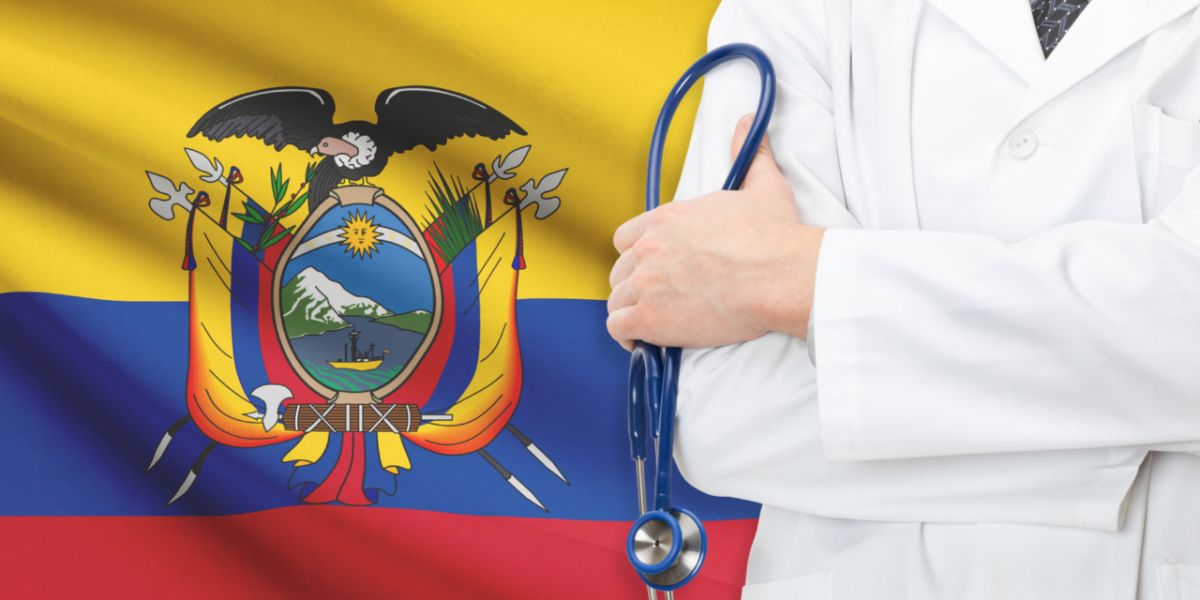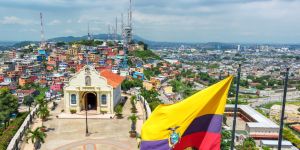
Ecuador, as a fast-developing nation, has laws that are constantly evolving, but one thing is certain: the ongoing changes are almost always for the better. Here's an overview of how things stand at present.
Where you will find care
First of all, it's important for expats to consider where you want to live in Ecuador when planning ahead for healthcare. Cuenca, Quito, and Guayaquil are home to many more doctors and clinical facilities than the more rural and less populated areas. Care is much better and more prevalent in these three urban areas as 66% of the population in Ecuador lives in and around them. The number of doctors in Ecuador is not high, averaging 1.72 doctors for 1,000 persons (2011). In comparison, the number in the USA is of 5.5 doctors for 1,000 persons. The more remote the area you choose to relocate, the less sophisticated the treatment. Before you settle in a gloriously wild corner of Ecuador, remember: serious matters or emergencies could require you to go into town to get appropriate treatment.
Private health systems for expatriates
Ecuador's health system comprises both public and private care, but many expats have favoured private over public care. Private health services incur fees, of course, but these charges usually can be considered quite affordable, even if one has no insurance coverage in Ecuador. Typically, you might pay as little as 10-30% of the price you would pay for the same clinical or surgical procedure in the United States. This includes excellent quality healthcare, as many private clinics use state-of-the-art equipment and employ well-trained and highly skilled specialists. It is not uncommon to find Ecuadorian doctors who were trained in the US, Canada, or Europe, and speak English. This high-quality, low-cost equation encouraged some expats in the past to take a 'self-insure' approach and opt to pay out-of-pocket whenever illness strikes. Private hospitals compare favourably with North American and European facilities, and patients will enjoy spacious private rooms, excellent care, and high nurse/doctor to in-patient ratios.
In 2016, a law was passed that required foreign tourists and residents to purchase and maintain some form of Ecuadorian health insurance. The government announced that this requirement would be verified upon entry into and exit out of Ecuador but, as of early 2018, the verification process has not yet been implemented. However, in order to obtain a new residency visa or transfer an existing residency visa from an old passport into a new one, health coverage is now a valid requirement. In cases where severe, long-term illness occurs, there can be no doubt that a comprehensive insurance backup plan is always a good idea in Ecuador, where even a comprehensive private insurance plan will not dig a bottomless hole in your pocket. In any case, it is expected that this requirement will be implemented for expat visitors in Ecuador in late 2018, therefore expat residents should purchase some form of private or public coverage if planning to live in Ecuador.
The main Ecuadorian private insurance companies are Confiamed, Prontomed, Salud, and Belgenica. Since the law changed in 2016 requiring health insurance for legal residents, insurance companies can no longer impose age restrictions, and all companies are required to limit pre-existing limitations as per the new law. These limitations must not be for longer than 2 years and may only restrict certain diseases such as AIDS, cancer, and serious heart disease. After the 2-year period, all covered conditions should be covered. Premium costs increase as the insured person ages each year, but the increases are limited by law. Different policy and plan types can vary significantly as well as carriers, and expats should be aware that there are many items that are not covered, such as elective plastic surgery and some preventive care.
Constantly improving public care
Ecuador's public health care system had a reputation that was far from pristine for many years. In 2008, President Correa began a much-needed overhaul that mandated universal coverage for all citizens and residents. Furthermore, the law required that employers enrol and pay for coverage for all contracted employees with the IESS system, a government-run social security scheme.
If you are suffering from a minor ailment, a stop into one of the clinics or dispensaries (Centro de Salud), which exist all over Ecuador, is easy. For something requiring more attention, one need only show up at one of the free public hospitals and you will receive treatment. Issues, of course, exist: the aforementioned lack of doctors and hospitals in some rural areas and the fact that, with the demand being high, waiting time can be long. In addition, most drugs that are prescribed in the public system are generic. If a patient needs a brand name drug, it might not be available through the free system, and you may have to pay for it on your own.
Again, these public free hospitals do not offer luxuries, but many do boast state-of-the-art facilities. Cuenca's free hospital recently performed a successful hand transplant. However, in spite of the improvements since 2008, public facilities in Ecuador, though excellent, probably still fall short of many expats' expectations in the field of health in comparison to what they may have been accustomed to in their home country.
Another option
Correa's government made a further step at the start of 2013 in continuing the universal healthcare mandate. The government now offers non-employed or self-employed citizens and legal residents enrollment into the IESS (Instituto Ecuatoriano de Seguridad Social) health care system. 'Voluntary' affiliation (self-paid coverage enrollment) is offered at a very reasonable cost for complete health care with no out-of-pocket expense, and there is no age limit. As a result, standards and quality of care improved significantly due to this increased enrollment all over Ecuador.
If you work in Ecuador, your employer will be the one to enroll you for IESS coverage, which includes payments on your behalf towards your retirement income after age 65 in Ecuador. Otherwise, expats with resident status can sign up online at www.iess.gob.ec under 'Voluntary Afiliation'. Monthly payments may be deducted from most Ecuadorian bank accounts and certain cooperativas (credit unions). If you prefer to pay in person, Banco de Guayaquil or Banco del Pacifico will accept monthly payments. The cost is about 20% of stated income, but retired people aged 65 and over are covered at the minimum premium, which is, currently in 2018, $72 for the primary covered person per month. Coverage begins the first of the following month for new ailments or emergencies and accidents, while all pre-existing medical issues are covered the first of the month after 90 days of paid enrollment. Once your first payment is accepted, your spouse or dependent may then sign on for an additional premium of $12 each, and will also have the 90-day waiting period for existing ailments. The IESS affiliation also covers dental care, eye care, and burial.
In order to visit a physician, you will need to make an appointment to see a doctor by contacting the national call centre. The number to call is 140 on your cell phone keypad. Visits to a general practitioner are usually scheduled within a few days, and in order to see a specialist, the general practitioner will schedule that visit during your initial office visit. If the physician prescribes lab or x-ray tests, you will be given the instructions on where and when these will take place, and the doctor will schedule your check-back visit for review of the exams. If admitted as an in-patient, you would be sharing a room with two to six other patients.
Most larger cities in Ecuador now have local clinics and emergency rooms for more urgent care. If the local IESS facility is not able to handle your care, you may be moved to a larger facility and sometimes even to a private facility. In cases of an emergency, you may also go to practically any hospital's emergency room, present your cedula (ID Card) and specify that you are an affiliate in the IESS system, which means you should be treated free of charge. However, some hospitals may not comply with this and may require that you pay for your visit or stay. Submission of the correct receipts (facturas) of emergency care in a private facility to the IESS general administrative office within three days of the date of care should be reimbursed. If you were admitted to a non-IESS emergency room, as your condition becomes more stable, you may or may not be transferred to an IESS facility, depending on your health status and available space.
Medical tourism
Medical tourism is increasing worldwide as costs for surgeries and dental care in many developed countries soar. Ecuador is considered a prime location for care due to the low cost and high quality of care along with year-round spring weather that will be enjoyed during the recovery period. Charges for dental care can be half the cost in the USA; knee replacements and plastic surgeries can be one-third the cost for similar surgeries in the US. Dermatological treatments use the same medications and medical equipment, including lasers, that are seen as expensive in US and European clinics but usually cost one-third to one-fourth of the price in Ecuador. After-care is excellent and patient-centred. Many dentists and surgeons have been trained in the USA, Canada, Brazil, and Europe speak English and/or French fluently, but have returned to Ecuador to practice medicine due to the quality of life enjoyed in Ecuador. Plastic surgery is also very common in Latin America. In any case, do your homework and review the physician's reputation before submitting to any major procedure.
Useful links:
Ecuadorian Security Institute in charge of public health
Registering to the public health system
List of Centros de Salud
List of hospitals in Ecuador suggested by the US government
Article about how the new legislation is changing insurance practices
We do our best to provide accurate and up to date information. However, if you have noticed any inaccuracies in this article, please let us know in the comments section below.











